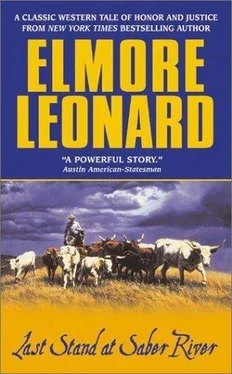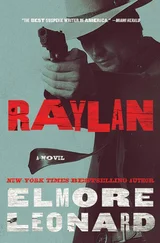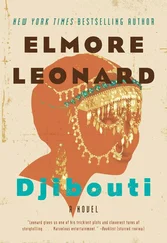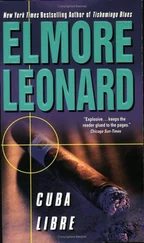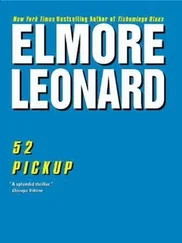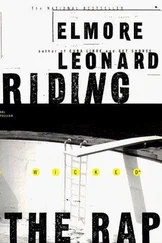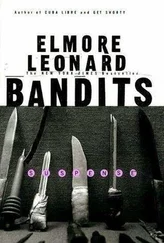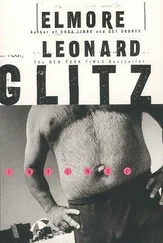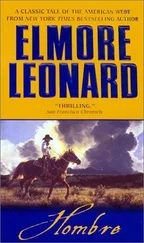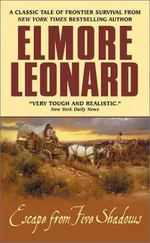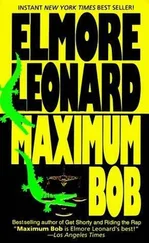Elmore Leonard - Last Stand at Saber River
Здесь есть возможность читать онлайн «Elmore Leonard - Last Stand at Saber River» весь текст электронной книги совершенно бесплатно (целиком полную версию без сокращений). В некоторых случаях можно слушать аудио, скачать через торрент в формате fb2 и присутствует краткое содержание. Жанр: Вестерн, на английском языке. Описание произведения, (предисловие) а так же отзывы посетителей доступны на портале библиотеки ЛибКат.
- Название:Last Stand at Saber River
- Автор:
- Жанр:
- Год:неизвестен
- ISBN:нет данных
- Рейтинг книги:5 / 5. Голосов: 1
-
Избранное:Добавить в избранное
- Отзывы:
-
Ваша оценка:
- 100
- 1
- 2
- 3
- 4
- 5
Last Stand at Saber River: краткое содержание, описание и аннотация
Предлагаем к чтению аннотацию, описание, краткое содержание или предисловие (зависит от того, что написал сам автор книги «Last Stand at Saber River»). Если вы не нашли необходимую информацию о книге — напишите в комментариях, мы постараемся отыскать её.
Last Stand at Saber River — читать онлайн бесплатно полную книгу (весь текст) целиком
Ниже представлен текст книги, разбитый по страницам. Система сохранения места последней прочитанной страницы, позволяет с удобством читать онлайн бесплатно книгу «Last Stand at Saber River», без необходимости каждый раз заново искать на чём Вы остановились. Поставьте закладку, и сможете в любой момент перейти на страницу, на которой закончили чтение.
Интервал:
Закладка:
But think it out carefully, he thought, now that there could be a way. Don’t stumble; he’s right here waiting, but you have to use him properly.
Cable-Janroe could feel the certainty of it inside of him-was going to help him kill Vern and Duane Kidston. And then, thinking of Cable’s wife, he decided that before it was all over, Cable would be as dead as the two men he would help kill.
Cable forded the river at the store and followed it north out into the open sunlight of the mile-wide valley, then gradually west, for the valley curved in that direction with the river following close along its left, or west, slope. The far side of the valley was rimmed by a low, curving line of hills. The near slope also rolled green-black with pines; but beyond these hills, chimneyed walls of sandstone towered silently against the sky. Beyond the rock country lay the Kidston place.
Sandy was asleep. Davis and Clare sat on the endgate, Davis holding the reins of the sorrel. And Martha sat with Cable, listening in silence as he told her everything Janroe had said about the Kidstons.
When he had finished, Martha said, “What if they won’t leave, Cabe? The ones in our house.”
“Let’s wait and see.”
“I mean with the children to think of.”
“The children and a lot of things,” Cable said.
They talked about Luz then. Even in the kitchen, Martha said, Luz had acted strangely: tense and almost reluctant to talk even about everyday things. She did tell that the store had been left to them, to Manuel and herself, in John Denaman’s will; and they would stay here. The grave of their mother in a Sonora village was the only tie they had with their birthplace; the store had been their home for a dozen years. Luz had been only six, Manuel twelve, when their father came here to work for John Denaman. The next year their father died of a sickness and John Denaman had cared for them from that day on.
But she related little more about Edward Janroe than what she had told Cable-the man’s name, the fact that he owned a half interest in the store and had been here eight or nine months.
But if business was so poor, Cable asked, why would Janroe want to buy into the store?
Because of Luz? Martha offered.
Perhaps. Luz was a good-looking girl. Janroe could easily be attracted to her.
But Martha was sure that Luz still liked Vern Kidston. Luz mentioned that she used to see Vern frequently; but that was before Janroe came. Something else to wonder about. Though Janroe himself was the big question.
“What do you think of him?” Cable asked.
“All I’m sure of is that he has a low opinion of women,” Martha said mildly, “judging from the lecture he gave me.”
“He won’t do that again,” Cable said. “I talked to him.”
Martha smiled. She moved closer to her husband and put her arm through his.
They rode in silence until they saw, through the willow and aspen along the river, horses grazing farther up the meadow. Martha handed her husband the field glasses and took the reins.
“About thirty, just mares and foals,” Cable said after a moment. “And a man with them.”
Martha kept the team moving. They were close to the base of the slope with the dark well of pines above them and the river close on their right. Their house was perhaps a quarter of a mile ahead, no more than that, set back a hundred feet from the river; but it was still out of sight, hidden by the pine stands that straggled down from the slope.
Through the glasses, Cable saw the rider come out of the trees on this side of the river. He noticed that the man was bearded and remembered Luz Acaso’s description of the one named Bill Dancey: older by ten years than the other two; the one in charge.
“He must have seen us,” Cable said. “He just crossed over.”
“Waiting for us?” asked Martha.
“No, going for the house.” He handed the glasses to Martha, feeling the children close behind him now.
Davis said, “Can I look?”
“Not right now.” Cable half turned on the seat. “Listen, I want you children to stay right where you are. Even when we stop, stay there and don’t jump off.”
Clare’s dark eyes were round and open wide. “Why?”
“Because we’re not sure we’re staying.”
Cable looked at the boy again. “Davis, you hold on to Sandy. You won’t let him jump out now, will you?”
The little boy shook his head solemnly. “No, sir.”
Cable smiled at his children. His hand reached to the wagon bed, felt the short barrel of the Spencer carbine, then moved to the shotgun next to it and brought it out, placing it muzzle-down between them on the seat.
“Martha, this one’s yours. Put your hand on it when I climb off, but don’t lift it unless you see you have to.”
He drew the Walker Colt from its holster, eased back the hammer, turned the cylinder carefully, feeling the oil-smoothness of the action, and lowered the hammer again on the empty chamber.
“There’s the house,” Martha said anxiously. “Part of it.” She could see an adobe-colored shape through the pines close in front of them.
Then, coming out of the trees, the house was in full view: a one-story adobe with an addition made of pine logs, a shingled roof and a ramada that ran the length of the adobe section. Beyond, part of the barn could be seen.
Cable’s eyes were on the bearded rider. He was near the house, still mounted but facing them now, watching them approach. A second man had come out of the house and stood near the mounted man.
“This is far enough,” Cable said. They were less than fifty feet from the men now. As the wagon stopped a third man, thumbing a suspender strap up over his bare chest, appeared in the doorway of the adobe. All three men were armed. Even the one in the doorway, though half dressed, wore crossed belts holding two holstered revolvers.
“The one in the door,” Cable said. “Keep a close eye on him.” Martha made no answer, but he didn’t look at her now. He breathed in and out slowly, calming himself and putting it off still another moment, before he jumped down from the wagon, holding his holster to his leg, and moved toward the mounted man.
“You were a while getting here,” Bill Dancey said. He dismounted, swinging his leg over carefully, and stood with his feet apart watching Cable coming toward him.
Within two strides Cable stopped. “You knew we were coming?”
“Janroe mentioned it.” Dancey’s short-clipped beard hid any change of expression. He nodded toward the man who stood near him. “Royce here went in for something I forgot this morning and Janroe told him.”
Cable glanced at the one called Royce: a tall, thin-framed man who stood hip-cocked with his thumbs hooked into his belt. His hat was tilted forward, low over his eyes, and he returned Cable’s stare confidently.
Royce must have taken the horse trail, a shorter route that followed the crest of the slope, to and from the store; that’s why they hadn’t seen him, Cable decided.
He looked at Dancey again. “Did Janroe tell him it’s my land you’re on?”
Dancey nodded. “He mentioned it.”
“Then I don’t have to explain anything.”
“That’s right,” Royce said. “All you have to do is turn around and go back.”
There it was. Cable gave himself time, feeling the tension through his body and the anger, not building, but suddenly there as this lounging, lazy-eyed poser told him very calmly to turn around and go back. At least there was no decision to make. And arguing with him or with Dancey would only waste time. Even with Martha and the children here he knew how far he would go if necessary. He wanted to feel the anger inside of him because it would make it easier; but he wanted also to control it and he let his breath out slowly, shaking his head.
Читать дальшеИнтервал:
Закладка:
Похожие книги на «Last Stand at Saber River»
Представляем Вашему вниманию похожие книги на «Last Stand at Saber River» списком для выбора. Мы отобрали схожую по названию и смыслу литературу в надежде предоставить читателям больше вариантов отыскать новые, интересные, ещё непрочитанные произведения.
Обсуждение, отзывы о книге «Last Stand at Saber River» и просто собственные мнения читателей. Оставьте ваши комментарии, напишите, что Вы думаете о произведении, его смысле или главных героях. Укажите что конкретно понравилось, а что нет, и почему Вы так считаете.
